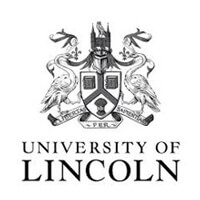fees waived
Biochemistry, BSc (Hons), with industry placement
University of Lincoln, United Kingdom
Subject ranking
UK / The Times 43rd
UK / CUG 45th
UK / CUG 48th
Costs
food & rentS$16.8K / year
Entry requirements
Scholarships
4 available
Unlimited quantity
Unlimited quantity
Unlimited quantity
Unlimited quantity
Limited quantity
Limited quantity
Information
Code
Code
Intakes
Website (External)
Programmes
Information
Duration
2028
Course summary
Our BSc (Hons) Biochemistry degree takes a research-centred approach to teaching and learning, providing the opportunity to work closely with academics on collaborative research projects. Advances in biochemical research have led to greater understanding of metabolic regulation, cell signalling, disease biology, drug development and genetics, and have revolutionised the biotechnology industry. This course examines the chemistry of life at a molecular level and reflects the University’s expertise in pharmacology, biomedical science, biology and biotechnology. Students have the opportunity to develop skills in practical laboratory techniques, data interpretation, critical analysis, computational skills allied to biochemistry and scientific writing. The Biochemistry degree offers optional modules to allow students greater choice in their academic studies. Modules have been developed to cover topics relevant to current or developing fields allied to the Life Sciences. During the first year, students can study a breadth of core topics, including biochemistry, physiology, genetics and cell biology. A more detailed examination of biochemistry follows in the second year, covering biomolecules, human disease, immunology and molecular biology. In the final year, students undertake an individual research project which provides the chance to develop investigation skills, in addition to studying key themes such as biotechnology, microbial biochemistry, topics in biochemistry and clinical biochemistry.For the most up to date module information, please visit the course page for this programme on our website. Some programmes provide you with the opportunity to focus your study in a particular area through optional modules. Timetabling arrangements may limit the availability of some optional modules to some students. As the options often reflect staff research interests, they may alter over time due to staff availability. The way students will be assessed on this course will vary for each module. It could include coursework, such as a dissertation or essay, written and practical exams, portfolio development, group work or presentations to name some examples. Throughout this degree, students may receive tuition from professors, senior lecturers, lecturers, researchers, practitioners, visiting experts or technicians, and they may be supported in their learning by other students.Modules
Assessment method
The Biochemistry degree offers optional modules to allow students greater choice in their academic studies. Modules have been developed to cover topics relevant to current or developing fields allied to the Life Sciences. During the first year, students can study a breadth of core topics, including biochemistry, physiology, genetics and cell biology. A more detailed examination of biochemistry follows in the second year, covering biomolecules, human disease, immunology and molecular biology. In the final year, students undertake an individual research project which provides the chance to develop investigation skills, in addition to studying key themes such as biotechnology, microbial biochemistry, topics in biochemistry and clinical biochemistry. For the most up to date module information, please visit the course page for this programme on our website. Some programmes provide you with the opportunity to focus your study in a particular area through optional modules. Timetabling arrangements may limit the availability of some optional modules to some students. As the options often reflect staff research interests, they may alter over time due to staff availability.
A local representative of University of Lincoln in Singapore is available online to assist you with enquiries about this course.

